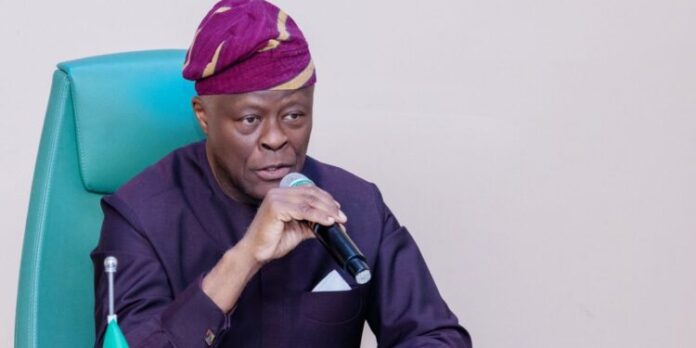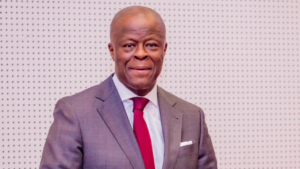The Minister of Finance and Coordinating Minister of the Economy, Wale Edun, has stated that Nigeria must continue borrowing to fund its budget, even though some Ministries, Departments, and Agencies (MDAs) have exceeded their revenue targets.
Edun made this known during an interactive session of the Senate Joint Committees on Finance, National Planning, and Economic Affairs on the 2025-2027 Medium-Term Expenditure Framework/Fiscal Strategy Paper.
According to him, the borrowings must be “productively and efficiently” utilized and must receive the Senate’s approval to ensure proper budget funding.
Echoing Edun’s remarks, the Minister of Budget and Economic Planning, Senator Atiku Bagudu, emphasized that the borrowing plans in the N35.5 trillion 2024 budget primarily aim to address the N9.7 trillion deficit.
However, the Economic and Financial Crimes Commission (EFCC) and the Revenue Mobilization and Fiscal Commission have argued that effective revenue collection could eliminate the need for borrowing.
The EFCC Chairman, Ola Olukoyede, informed the committee that the commission had recovered over N197 billion since January 2024. He argued that the government could fund its budget by improving revenue collection, particularly from International Oil Companies (IOCs).
Similarly, the Comptroller General of Nigeria Customs Service, Bashir Adeniyi, disclosed that Customs had collected N5.352 trillion, exceeding the N5.09 trillion target for the 2024 fiscal year. Adeniyi projected a revenue target of N6.3 trillion for 2025, with a 10% annual increase planned for 2026 and 2027.
Mele Kyari, the Group Chief Executive Officer of the Nigerian National Petroleum Company Limited (NNPCL), stated that the company had already exceeded its 2024 revenue projection of N12.3 trillion, generating N13.1 trillion. For 2025, NNPCL plans to remit N23.7 trillion into the federation account.
Additionally, the Chairman of the Federal Inland Revenue Service (FIRS), Zacch Adedeji, confirmed that the agency had surpassed its revenue targets across various tax components.
Despite criticism, the Senate has approved President Bola Tinubu’s ₦1.77 trillion ($2.2 billion) loan request as part of the external borrowing plan to finance the N9.7 trillion budget deficit.
The approval was granted following a report by the Senate Committee on Local and Foreign Debts, chaired by Senator Wammako Magatarkada. The Deputy Senate President, Barau Jibrin, presided over the session, which concluded with a voice vote in favor of the loan.
The loan request has drawn sharp criticism from opposition leaders. Former Vice President Atiku Abubakar described the move as “bone-crushing” for Nigerians.
“These @officialABAT’s loans are bone-crushing to Nigerians and bringing insufferable pressure on the economy, especially when they are not properly negotiated and utilized,” Atiku wrote on X (formerly Twitter).
He accused the administration of pursuing loans driven by corruption rather than developmental needs. “It is concerning that the voracious appetite for these humongous loans is powered by corruption and not for infrastructure and development needs,” Atiku stated, citing a report by budget watchdog Budgit, which described the 2024 budget as poorly managed.
Atiku also criticized the National Assembly, accusing it of being an “accomplice once more.”





